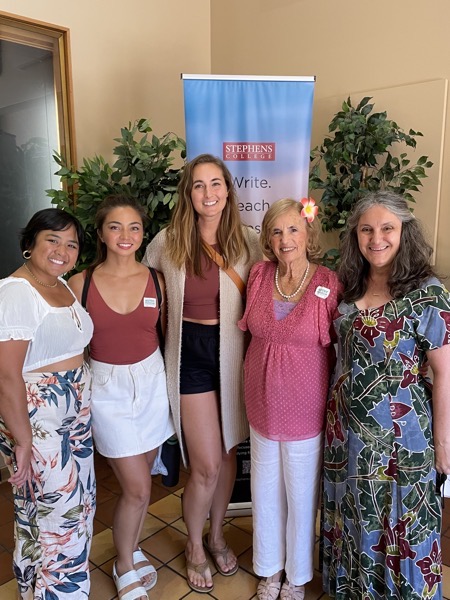Transcript:
I had a partner in my early days and we got a job on “Beverly Hills 90210” because she was the assistant on that show and then we got a job on “Picket Fences” because I had met Jeff Melvoin who was the producer of that but I’d met him four years earlier as an assistant on a different show and so then I had to wait until he got a high enough level job that he – you know – could invite me to do a freelance and then I spent seven years on a show called “Touched by an Angel” which ran for 10 years and was a – we sometimes say in Hollywood it’s when they back up the money truck because you need residuals and all those things that don’t exist in streaming. So the business finances are changing as well. There will be more jobs that pay less. They still pay more than being a high school English teacher though but there won’t be residuals. Which a lot of people relied on residuals for many many years.
One of the benefits of attending conferences is that you can meet the editors from the companies that have published some of your books face to face. That happened at the recent SCMS conference where I met Intellect editor James Campbell and he invited me to be a guest on his InstagramLive show.
We chatted about my work with the Stephens College MFA in TV and Screenwriting, and then my work with co-editor Rose Ferrell on the Journal of Screenwriting’s special issue on Women in Screenwriting (Volume 11, Number 3) that came out recently and which featured articles about an international set of female screenwriters from Syria, Argentina, China and Canada (to name a few).
We even had time to nerd out on our own favorite classic films across the eras which brought up fun memories of Angels with Dirty Faces, Back to the Future, Bonnie and Clyde, and of course, all things Star Wars from the original 3 to The Mandalorian. It’s always so fun to talk to fellow cinephiles.

Watch this entire presentation
With Intellect Books Editor James Campbell (@IntellectBooks)
Speaking with Dr. Rosanne Welch, Author, teacher, and television screenwriter. Today we cover everything from women in screenwriting to our favorite Jimmy Cagney movies and Friends.
Podcast: Play in new window | Download
Subscribe: RSS
![26 More On My Screenwriting Story from In Conversation with Dr. Rosanne Welch [Video]](https://rosannewelch.com/wp-content/uploads/2022/08/rmw-intellect-26.jpg)

![10 Women Writing Westerns from What Is a Western? Interview Series: When Women Wrote Westerns from the Autry Museum of the American West [Video]](https://rosannewelch.com/wp-content/uploads/2022/08/rmw-western-10.jpg)
![25 My Screenwriting Story from In Conversation with Dr. Rosanne Welch [Video]](https://rosannewelch.com/wp-content/uploads/2022/08/rmw-intellect-25.jpg)

![09 More On Women Writing Westerns For TV from What Is a Western? Interview Series: When Women Wrote Westerns from the Autry Museum of the American West [Video]](https://rosannewelch.com/wp-content/uploads/2022/08/rmw-western-09.jpg)
![from In Conversation with Dr. Rosanne Welch [Video]](https://rosannewelch.com/wp-content/uploads/2022/08/rmw-intellect-24.jpg)




![08 Women Writing Westerns For TV from What Is a Western? Interview Series: When Women Wrote Westerns from the Autry Museum of the American West [Video]](https://rosannewelch.com/wp-content/uploads/2022/08/rmw-western-08.jpg)

![17 We Stand On The Shoulders…from When Men Forget Women: The Many Ways Male Screenwriters Fail to Mention their Female Colleagues [Video]](https://rosannewelch.com/wp-content/uploads/2022/08/rmw-scms-2021-17.jpg)